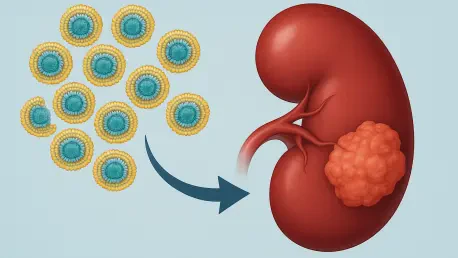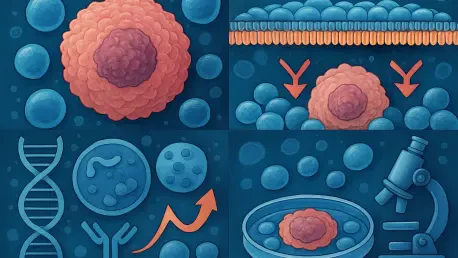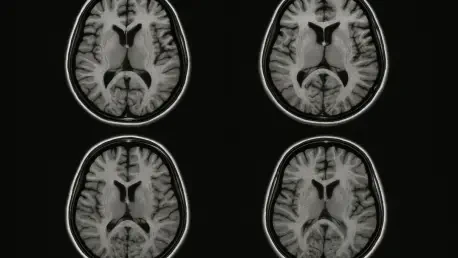

I'm thrilled to be speaking with Ivan Kairatov, a renowned biopharma expert with extensive experience in research and development, as well as a deep understanding of technological innovation in the industry. Today, we’re diving into the complex world of drug development for rare diseases, with a

The landscape of healthcare in England has undergone a notable shift with the recent updates to the general practice (GP) contract, effective from October 1, mandating that all GP surgeries maintain online consultation tools during core hours from 8 a.m. to 6:30 p.m. for routine patient inquiries.

Imagine a silent contaminant lurking in the tap water of millions, undetected by taste or smell, yet capable of accumulating in the human body with potential health consequences that could impact generations. Per- and polyfluoroalkyl substances (PFAS), often called "forever chemicals" due to their

Lipid reprogramming has emerged as a critical frontier in understanding and treating clear cell renal cell carcinoma (ccRCC), the predominant subtype of kidney cancer that accounts for a significant portion of cases worldwide. This metabolic transformation, where tumor cells drastically alter how

What happens when a tumor outsmarts the very treatments designed to destroy it, turning a lifeline into a losing battle for countless patients? In the relentless fight against breast and ovarian cancers tied to BRCA2 deficiencies, a staggering reality emerges: chemotherapy often fails as tumors

In a world where HIV continues to impact millions globally, a groundbreaking effort at The Herbert Wertheim UF Scripps Institute for Biomedical Innovation & Technology in Jupiter, Florida, is sparking hope for a transformative solution. This research hub has embarked on an ambitious journey to

What if a single scan could reveal the hidden intricacies of a brain ravaged by Alzheimer’s with startling precision, in half the time of traditional methods? At the University of Arizona in Tucson, this isn’t a distant dream but a tangible reality. Two cutting-edge MRI systems, enhanced by

In a world where colorectal cancer continues to affect nearly two million people annually, a groundbreaking discovery offers a glimmer of hope for those battling this devastating disease, and a recent clinical trial conducted by a Swedish research team has unveiled a remarkable finding. A simple,

The intersection of alcohol consumption and brain health has long been a topic of debate, with past research suggesting that a glass of wine or a moderate drink might even offer protective benefits against cognitive decline. However, a groundbreaking study recently published in a leading medical

What if a disease as deadly as pancreatic cancer, known for its stubborn return even after grueling treatments, could be tamed by a single, precise strike during surgery? At Johns Hopkins Kimmel Cancer Center, a groundbreaking approach using intraoperative radiation therapy (IORT) has slashed local
ITCurated uses cookies to personalize your experience on our website. By continuing to use this site, you agree to our Cookie Policy